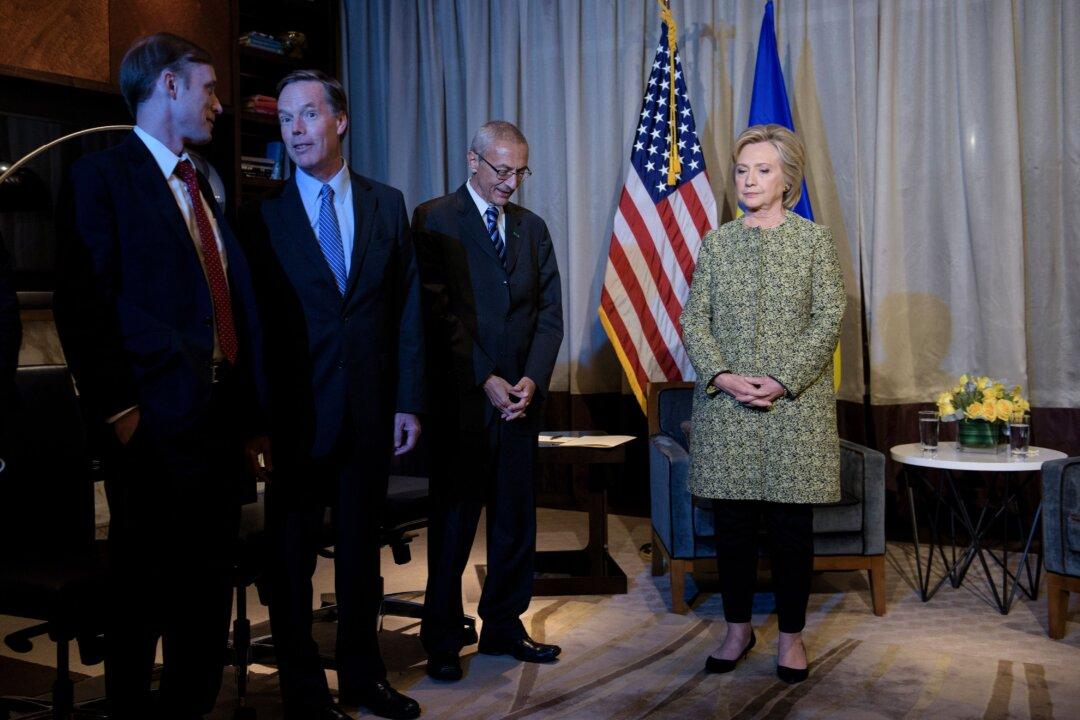WASHINGTON—Hillary Clinton greenlighted the plan to give allegations against then-presidential candidate Donald Trump to a reporter ahead of the 2016 election, Clinton’s campaign manager testified in federal court on May 20.
“We told her we have this and we want to share it with a reporter. She agreed to that,” former Clinton campaign manager Robby Mook said.






